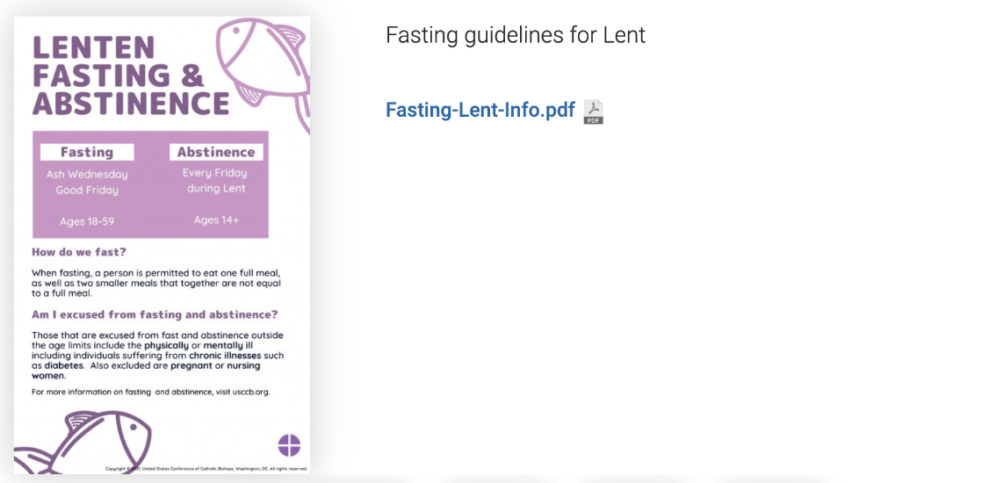Catholics between the ages of 18 and 59 are obliged to fast on Ash Wednesday and Good Friday. In addition, all Catholics 14 years old and older must abstain from meat on Ash Wednesday, Good Friday and all the Fridays of Lent. (Source: Fast & Abstinence USCCB.org )
Fasting as explained by the U.S. bishops means partaking of only one full meal. Some food (not equaling another full meal) is permitted at breakfast and around midday or in the evening— depending on when a person chooses to eat the main or full meal.
Abstinence forbids the use of meat, but not of eggs, milk products or condiments made of animal fat. Abstinence does not include meat juices and liquid foods made from meat. Thus, such foods as chicken broth, soups cooked or flavored with meat, meat gravies or sauces, as well as seasonings or condiments made from animal fat are not forbidden. So it is permissible to use margarine and lard. Even bacon drippings which contain little bits of meat may be poured over lettuce as seasoning.
Each year in publishing the Lenten penance requirements, the U.S. bishops quote the teaching of the Holy Father concerning the seriousness of observing these days of penance. The obligation to do penance is a serious one; the obligation to observe, as a whole or “substantially,” the days of penance is also serious. But no one should be scrupulous in this regard; failure to observe individual days of penance is not considered serious.
Moral theologians remind us that some people are excused from fasting and/or abstinence because of sickness or other reasons. In his “Apostolic Constitution on Penance,” Pope Paul VI did more than simply reorganize Church law concerning fast and abstinence. He reminded us of the divine law that each of us in our own way does penance. We must all turn from sin and make reparation to God for our sins. We must forgive and show love for one another just as we ask for God’s love and forgiveness.
The Code of Canon Law and our bishops remind us of other works and means of doing penance: prayer, acts of self-denial, almsgiving, and works of personal charity. Attending Mass daily or several times a week, praying the rosary, making the way of the cross, attending the parish evening prayer service, teaching the illiterate to read, reading to the blind, helping at a soup kitchen, visiting the sick and shut-ins and giving an overworked mother a break by baby-sitting—all of these can be even more meaningful and demanding than simply abstaining from meat on Friday.


